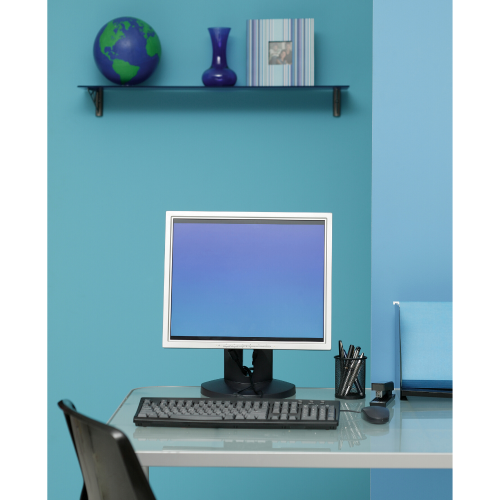Last updated: June 05 2024

Tax Traps: Home Office Expenses
Excerpted from Evergreen Explanatory Notes
A claim for home office expenses is common, but there are changes this year which are fraught with audit risk. The simplified claim method in place for 2020, 2021 and 2022 tax filing years has ended and so the “detailed method” must be used. The self employed have more latitude in claiming expenses but for employees a special tax trap is the claiming of supplies used up in the course of employment duties. Here’s what you need to know:
CRA has provided on its website a long list of supplies that may or may not be used in the home office space; but upon close inspection, the “allowed items” are a very small list indeed, especially for employees.
In the case of the self employed, deductions that are specific to the home office should be allocated specifically to the space; other expenses used up in the business for the potential of earning a profit, including telephone, internet costs, supplies consumed that are unrelated to the home office specifically can be claimed as a full business expenses (unless there is a personal use proration required). Home office expenses are claimable if the space is
- used exclusively to earn business income on a regular and continuous basis for the purposes of meeting clients of the business, or

- the principal place of business.
Deductible home workspace expenses for the self-employed include:
- utilities,
- maintenance and repairs including light bulbs and cleaning supplies,
- rent,
- insurance,
- property taxes,
- mortgage interest, and
- Capital Cost Allowance (CCA) (not recommended as the portion of the home on which CCA is claimed cannot be designated as the taxpayer's principal residence, with the result that the portion of the gain on the disposition of the home cannot be exempted from tax).
Employees. For employees however, the list of deductible expenses is more limited.
To qualify for home office expenses, the space must be
- the place where the individual principally (more than 50% of the time) performs the office or employment duties, or
- used exclusively during the period to which the expenses relate to earning income from the office or employment and, on a regular and continuous basis, for meeting customers or other persons in the ordinary course of performing the office or employment duties.
All employees may claim the following based on the proportional use for employment purposes:
- Utilities – electricity, heat, water
- Utilities portion (electricity, heat, and water) of condominium fees
- Monthly home internet access fees (but not the connection fees or cost of lease of a modem or router
- maintenance and minor repair costs
- rent paid for a house or apartment in which the taxpayer lives
Commission sales employees can also claim:
- utilities,
- maintenance and repairs including light bulbs and cleaning supplies,
- rent,
- insurance, and
- property taxes
Employees (Salaried or with commission) may not claim the following:
- mortgage interest
- principal mortgage payments
- furniture costs
- capital expenses (replacing windows, flooring, furnace, etc)
- wall decorations
When it comes to claiming office supplies, all employees can claim items like envelopes, file folders, highlighters, ink cartridges, note-books, paper clips, pens, pencils, paper and stationary, specialty paper ( graph paper or tracing paper, for example), stamps or postage, sticky notes, toner.
Not allowed are briefcases or computer cases, calculators, chairs, charging or connection cables, coffee supplies, desks, garbage or recycling, graphing equipment, electric heaters or fans, ergonomic examinations, plants or lamps. Online subscriptions, paper shredders are not deductible by employees but the self employed may be able to claim them.
Tax Tip. Remember, however, that the non-refundable digital news subscription tax credit may be claimed for up to $500 in subscription expenses after 2019 and before 2025. This is important because home office expenses are limited to the amount of employment, self-employment or commission sales income of the year.
Computer supplies are of particular concern. Here is the “not allowed” list for employees:
- the costs of the computers/laptops/tablets themselves (commission salespeople may however write off leasing costs),
- computer monitors, headsets, keyboards, laptop stands, microphones, mouse or mouse pads, power bars, printers or specialized printers, computer protection plans, protective floor mats, routers, scanners, smart speakers, software, storage containers or cabinets, TVs, USB drives, voice assistants, webcams.
The self employed will be able to write off these costs, some of which may be capital expenditures (if there is a useful life of more than a year), in which case, they are written off using the Capital Cost Allowance Schedules.
Forms Required. In order to claim home office expenses, an employee must have a Form T2200 on which the employer certifies that the employee is required to maintain the home office and pay the expenses of operating it. Electronic signatures are okay starting with the 2023 tax filing year.
Employees' claims for home office expenses are made on Form T777.
The self-employed would use the following forms:
T2125 Statement of Business or Professional Activities,
T2042 Statement of Farming Activities, or
T2121 Statement of Fishing Activities).
The Bottom Line. Don’t be surprised by the list of non-allowable home office expenses that could cause trouble in an audit, especially in a year of change from existing rules.
